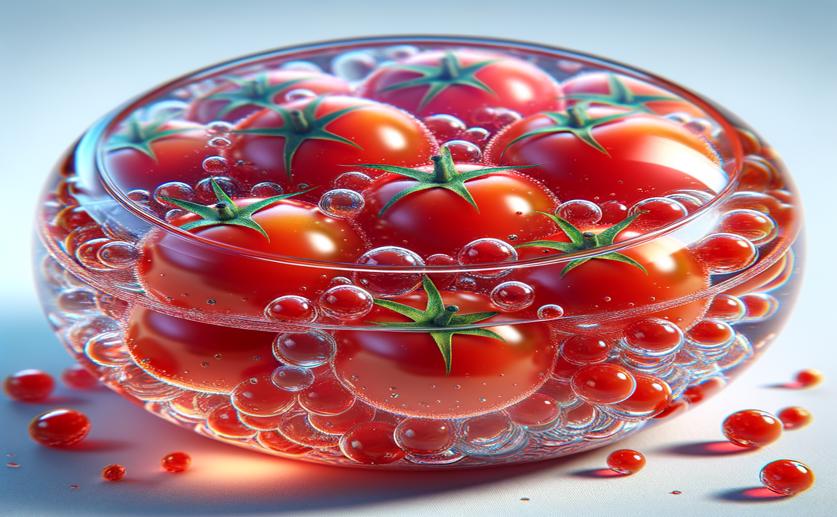
Quick-Making Hydrogel Films with Arbutin to Keep Cherry Tomatoes Fresher Longer
Jim Crocker
8th June, 2024

Image Source: Natural Science News, 2024
Key Findings
- Researchers from Central South University and Xinjiang Medical University developed a biodegradable plastic wrap to preserve fruits and vegetables and reduce environmental impact
- The wrap, made from κ-carrageenan, carboxymethyl chitosan, arbutin, and kaolin clay, forms quickly on fruit surfaces and conforms to their shapes
- The addition of kaolin clay improves the wrap's water resistance, oxygen barrier, and tensile strength, enhancing its preservation capabilities
AgricultureBiotechPlant Science
References
Main Study
1) Rapid in situ formation of κ-carrageenan-carboxymethyl chitosan-kaolin clay hydrogel films enriched with arbutin for enhanced preservation of cherry tomatoes.
Published 5th June, 2024
https://doi.org/10.1016/j.ijbiomac.2024.132957
Related Studies
2) Development of Multifunctional Nanoencapsulated trans-Resveratrol/Chitosan Nutraceutical Edible Coating for Strawberry Preservation.
3) Application of polysaccharide-rich solution derived from waste macroalgae Enteromorpha prolifera in cherry tomato preservation and utilizing post-extraction residue for crude bio-oil production.



 29th May, 2024 | Greg Howard
29th May, 2024 | Greg Howard